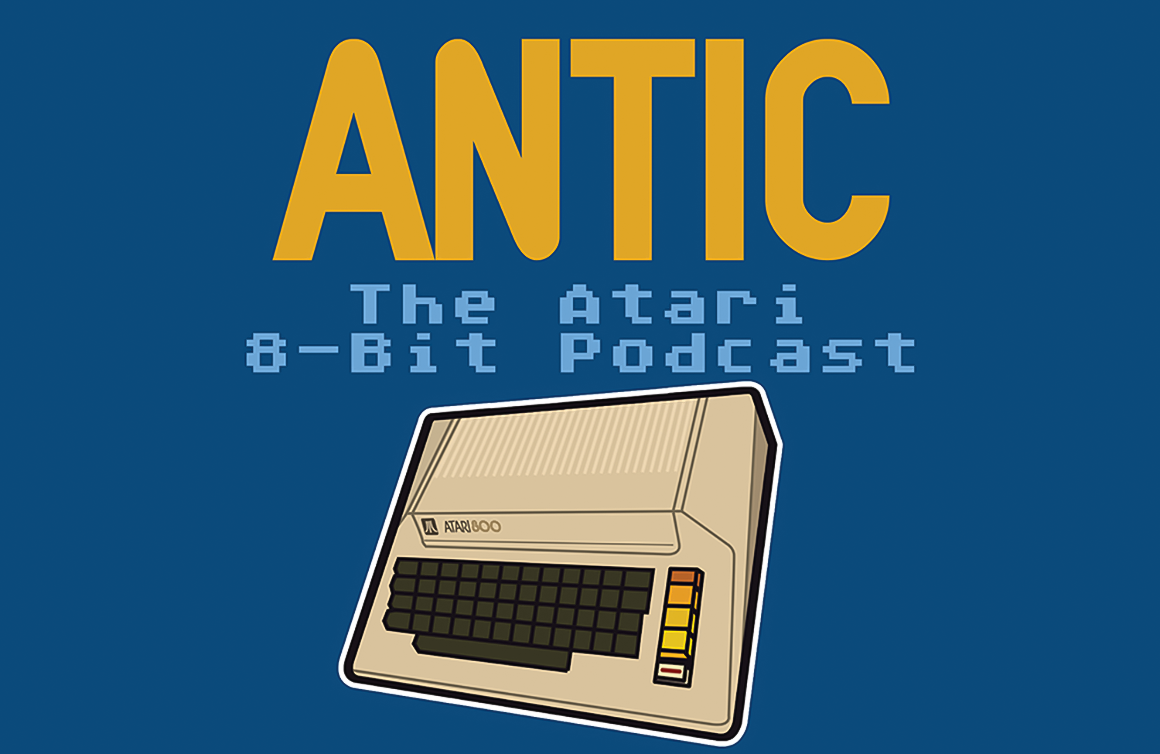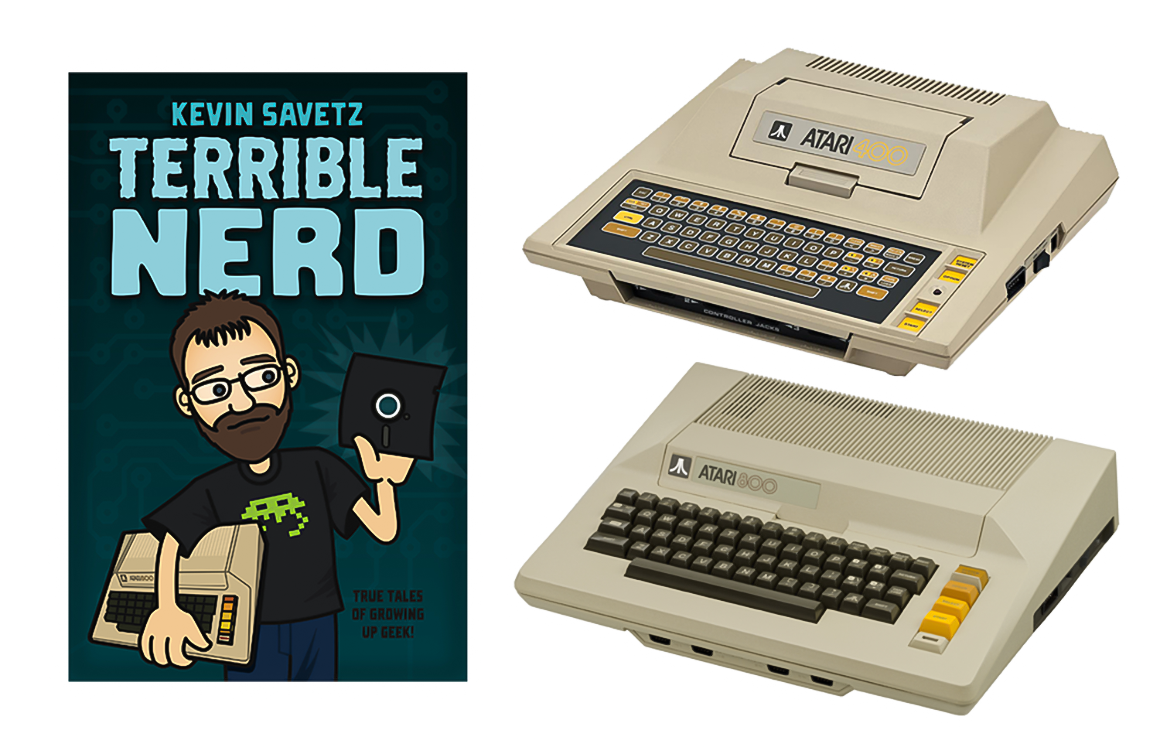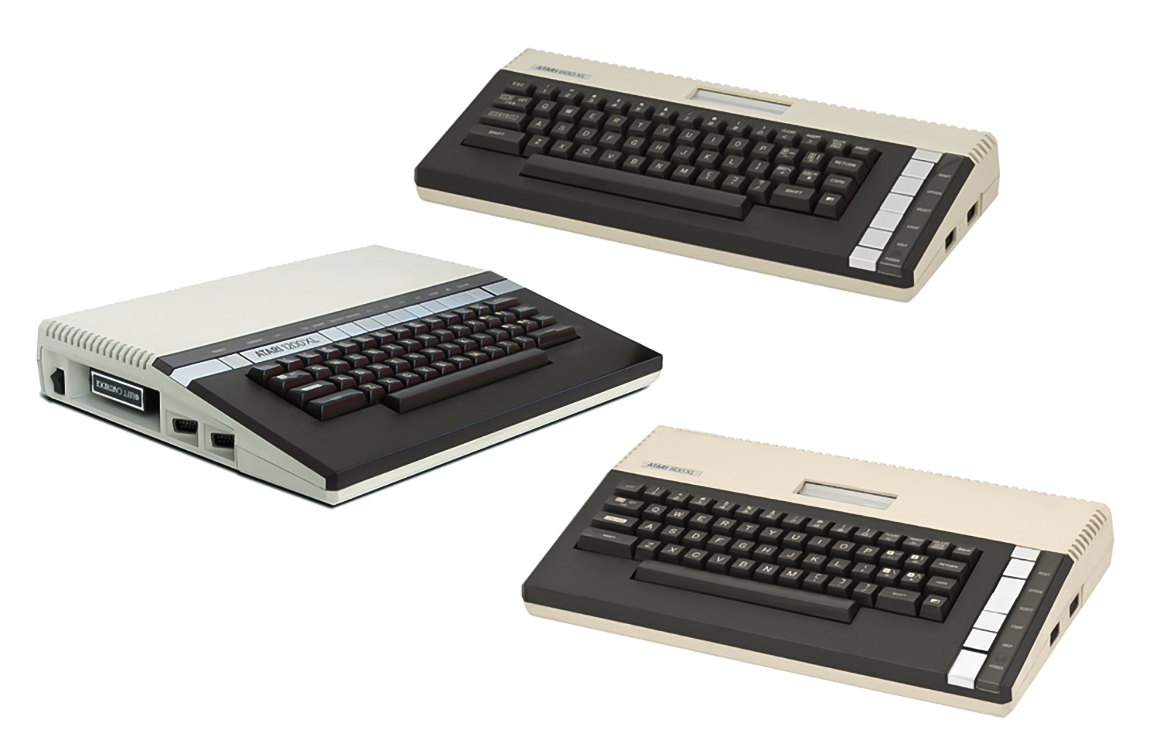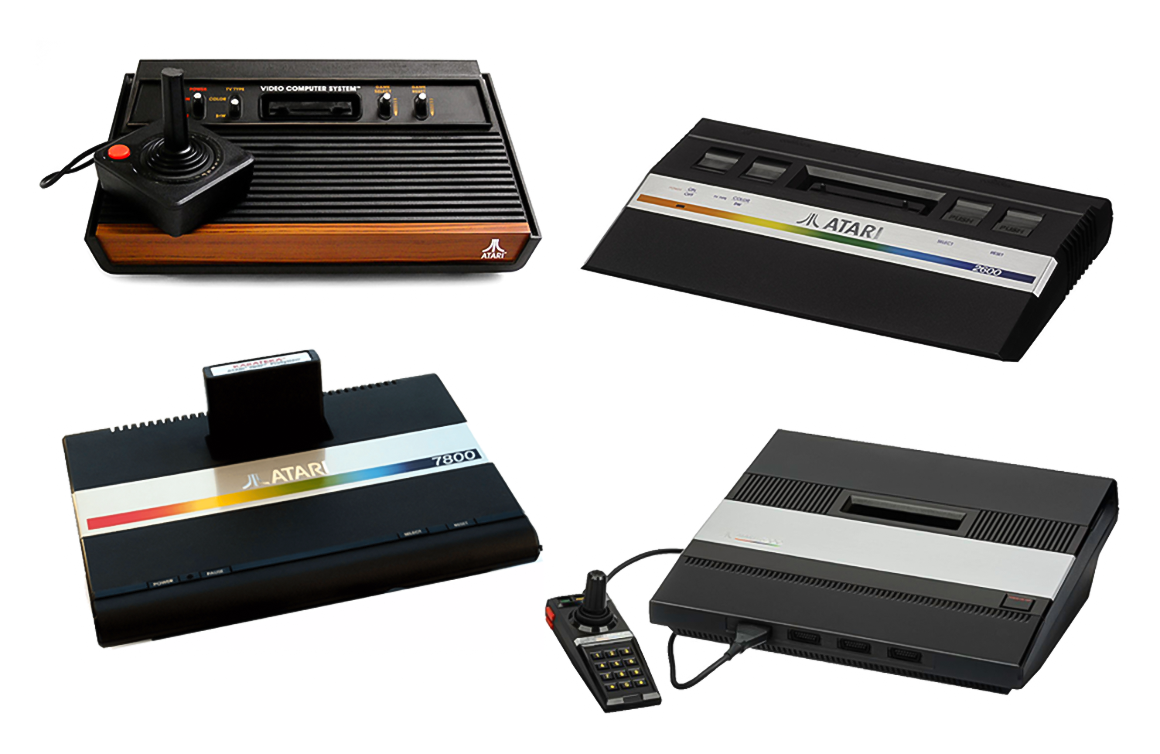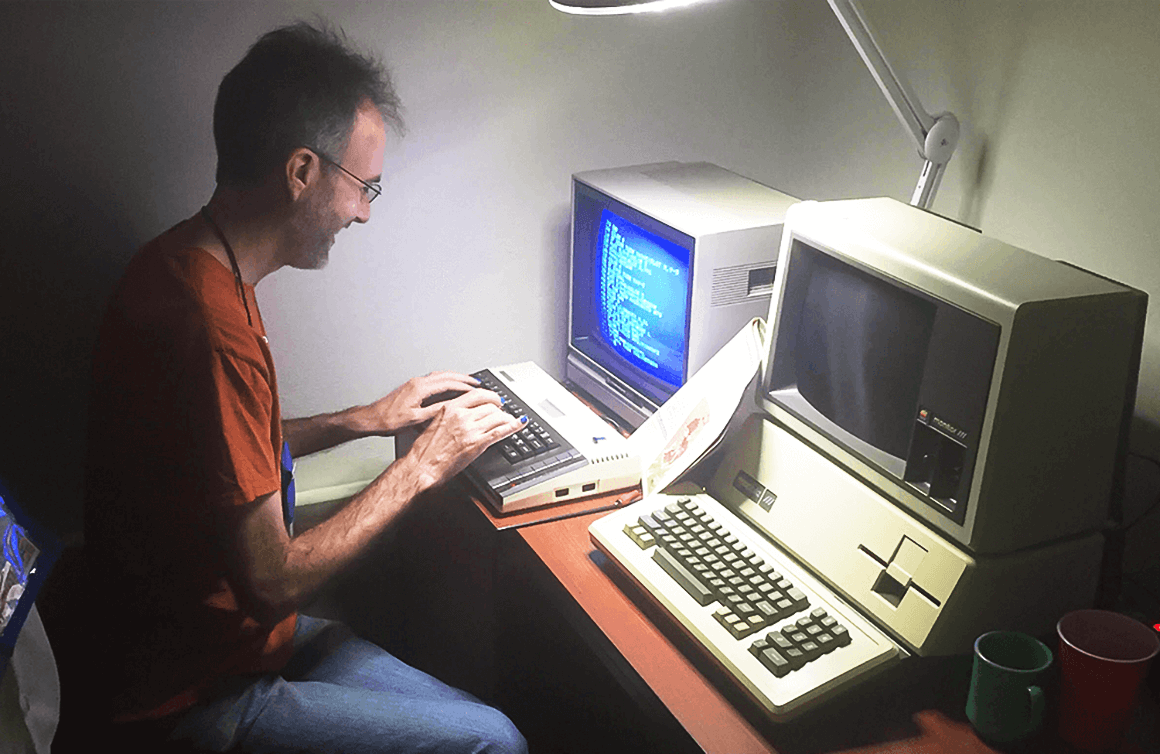Tell us about your personal history with Atari. What attracts you to the brand?
My dad got an Atari 800 computer when I was 12 or 13. It’s not hyperbole to say that that machine was my first love. It just adored it.
I think it’s pretty typical at that age to discover something and bond with it. That’s what happened to me. I loved that computer — loved learning about it and learning to program and play games. It opened up a whole new world for me as a kid.
I never really fell out of love with it. It didn’t come back to me as a burst of nostalgia — I’ve always had this passion since I was a kid.

What does your work as an Atari historian entail?
I’m not a professor of computing history nor do I work at a museum. Nobody is paying me for my work. I do professional-quality work but I do refer to myself as an amateur Atari historian. It’s me doing my own thing and following my passions.
I’ve interviewed more than 400 people associated with Atari computers — people who founded software companies, programmers, and editors of books and magazines. I chase people down — some of them famous — and discuss the topics that I find interesting. I get some stories that have never been told. I’m getting oral histories and stories that are important. Sometimes no one has ever asked these people about their stories. These are people who were instrumental in the microcomputer revolution.
The conversations primarily end up at ANTIC The Atari 8-bit Podcast. I put the interviews up on YouTube as well. Sometimes I do interviews for various retro-computing magazines. There’s one called juiced.gs that is dedicated to the Apple II computer. I write for them several times a year.
I also wrote a memoir called Terrible Nerd a few years ago. It’s about growing up as part of the first generation of kids to have access to a computer on the desk as opposed to people who barely had access to a giant mainframe in a cold room they couldn’t go into.

What hurdles have you experienced when documenting the long history of Atari?
I’m 51 years old. The people I interview are older than me — typically, 65 or older. The sad truth is they are increasingly unable to talk with me, either because their memories are fading or they have passed away. My work has this deadline. I don’t know what the deadline is exactly, but it’s ever approaching.
People think they know the stories but there are thousands of stories that aren’t as well known — you have to do a lot of digging to find them. When you do find them, it’s really worth it because it provides a clearer picture of that history.
I can’t do this forever because the people that I interview aren’t going to be there forever.

Atari celebrates its 50th anniversary this year. What are a couple of the stand-out moments for you in the brand’s history?
Atari has had its fair share of standout moments and missteps.
They basically invented getting video games into the hands of consumers — millions of consumers — through the Atari 2600. They were out of the gate with one of the best early microcomputers that gave computing power to regular people.
The company’s missteps back in the day and today are legendary. They made too much money too quickly back in the 1980s. They made some poor management decisions and ultimately didn’t keep up with the times as computers such as the IBM PC came out.
I probably don’t want to say this too loudly but the company that calls itself Atari today is not in any way related to the Atari that existed as one of the pioneers of the computing revolution.

What gives Atari such staying power, in your opinion?
I hope it’s not just nostalgia.
I believe that the games were fun for people and they are still fun for people. You can pick up Combat, Pitfall!, or Jumpman and those games are as fun as they ever were. You can sit down with them and have a great time with a friend. The games of that era often have more playability than the video games that are released today.

Listen to ANTIC The Atari 8-bit Podcast to discover the legacy of the Atari brand.


